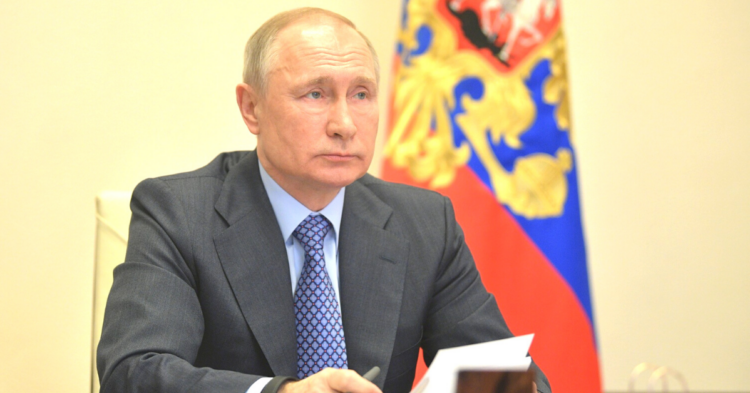The race to find a viable, effective, and safe vaccine for the coronavirus that has swept the globe in 2020 is an undertaking the world has seldom seen before.
Dozens of biotech labs the world over are hard at work developing vaccines, and should any of them prove worthy of distribution in the next year, it would set a record for the fastest vaccine developed in history, and it wouldn’t even be close. The record for the fastest vaccine, by the way, was the vaccine for mumps . That took scientists four years from start to finish.
Nevertheless, there are a few promising candidates that have already moved into Phase 3 of development, which involves large scale human trials over many months .
Russia, however, appears to be forging ahead on its own despite skepticism from the scientific community.
In fact, Russian President Vladimir Putin says that the country has become the first in the world to approve a coronavirus vaccine.

Speaking at a government meeting, Putin claimed that the vaccine had undergone all necessary testing and provided long-term immunity to the virus, AP News reported.
“I know it has proven efficient and forms a stable immunity, and I would like to repeat that it has passed all the necessary tests,” Putin said. “We must be grateful to those who made that first step very important for our country and the entire world.”
Putin also added that one of his daughters had already taken the vaccine.

Not specifying which of his two adult daughters had taken it, Putin said that she had received two shots for the vaccine. After the first shot, her temperature rose to 100.4 F (about 38 C), but it fell back to 98.6 F the next day. After the second shot, her temperature rose only slightly and soon dropped again.
“She’s feeling well and has high number of antibodies,” Putin said.
Russia’s health ministry added that the vaccine will be available to the public starting in October.

Taking the vaccine will be voluntary, and should provide immunity for up to two years, the ministry said, according to AP News .
However, the scientific community has expressed significant skepticism about the Russian vaccine — developed by the Gamaleya Institute in Moscow — noting that it hasn’t entered Phase 3 of trials yet, which casts doubt on the vaccine’s safety and effectiveness.
Releasing a potential vaccine to the public before adequate testing has been completed carries significant risks, experts say.

Danny Altmann, Professor of Immunology at Imperial College London, expressed serious concerns about Russia’s vaccine.
“The bar is necessarily set very high for criteria that must be satisfied for approval after Phase 3 clinical trials,” he said, according to CNN . “The collateral damage from release of any vaccine that was less than safe and effective would exacerbate our current problems insurmountably. I hope these criteria have been followed. We are all in this together.”
Without releasing any scientific data regarding the vaccine, officials have been pushing back on the skeptics.

Kirill Dmitriev, the head of the Direct Investment Fund involved in the development, told reporters that much of the vaccine development was based on previous experience with Ebola and MERS, according to CBS News .
“No corners have been cut,” he said. “Russian science is more advanced in this (area) than many other nations.”
He added that the Gamaleya vaccine is due to start Phase 3 trials on August 12, with industrial output starting in September.

















































